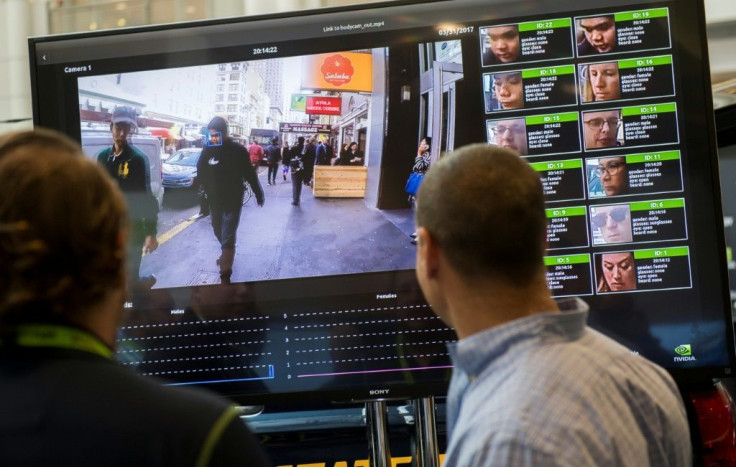Wrongful Arrest Based On Face Recognition System, Complaint Says

A flawed facial recognition algorithm led to the wrongful arrest of an African-American man in Detroit, according to a complaint filed Wednesday in a case highlighting concerns over the technology which critics say reinforces racial bias.
The American Civil Liberties Union, representing Robert Williams, said Wednesday it was the first known case of an unlawful arrest based on face recognition technology, which according to critics is often inaccurate in distinguishing faces of black people.
"Though Robert Williams may be the first known case, he is likely not the first person who was wrongfully arrested and interrogated based off a bogus face recognition hit," the ACLU said on Twitter.
"There are likely many people who just don't know that it was flawed technology that made them a target."
Williams wrote in the Washington Post that he was arrested in January outside his home and held for 30 hours, later learning he was wrongly identified based on surveillance footage from a robbery at a watch store.
"I never thought I'd have to explain to my daughters why daddy got arrested," Williams wrote. "How does one explain to two little girls that a computer got it wrong, but the police listened to it anyway?"
The news comes amid rising tensions over police misconduct following the deaths of several African Americans at the hands of law enforcement, and concerns that some technologies such as facial recognition may exacerbate discrimination.
Various studies show facial recognition systems used in the United States may be wildly inaccurate in attempting to identify blacks.
Joy Buolamwini, founder of the Algorithmic Justice League, an activist group, said the Williams case highlights how artificial intelligence technology can be abused to reinforce discrimination.
"This example cannot be reduced to a case of one bad algorithm," she said. "Instead what we are seeing is just a glimpse of how systemic racism can be encoded and reflected in AI systems."

Amid the recent unrest, some firms including IBM, Amazon and Microsoft said they would not be selling facial recognition technology to police departments until regulations are passed to ensure against misuse. But many other systems are widely used.
In a formal complaint to the police department, ACLU attorney Phil Mayor asked for a dismissal of the charges, an expungement of the arrest record, and a public apology to Williams.
The lawyer said Williams has not waived his right to pursue further action in court.
The ACLU also said the police should stop using facial recognition technology as an investigatory tool, and that any photos of Williams should be removed from the agency's database.
Williams wrote of the harrowing experience of being handcuffed in front of his family and spending the night "on the floor of a filthy, overcrowded cell."
"As any other person would be, I was angry that this was happening to me," he said. "As any other black man would be, I had to consider what could happen if I asked too many questions or displayed my anger openly -- even though I knew I had done nothing wrong."
In a related move Wednesday, Boston's city council voted to ban the use of face recognition technology by law enforcement.
"This is a crucial victory for our privacy rights and for people like Robert Williams, who have been arrested for crimes they didn't commit because of a technology law enforcement shouldn't be using," said Carol Rose, executive director of the ACLU of Massachusetts.
© Copyright AFP {{Year}}. All rights reserved.





















